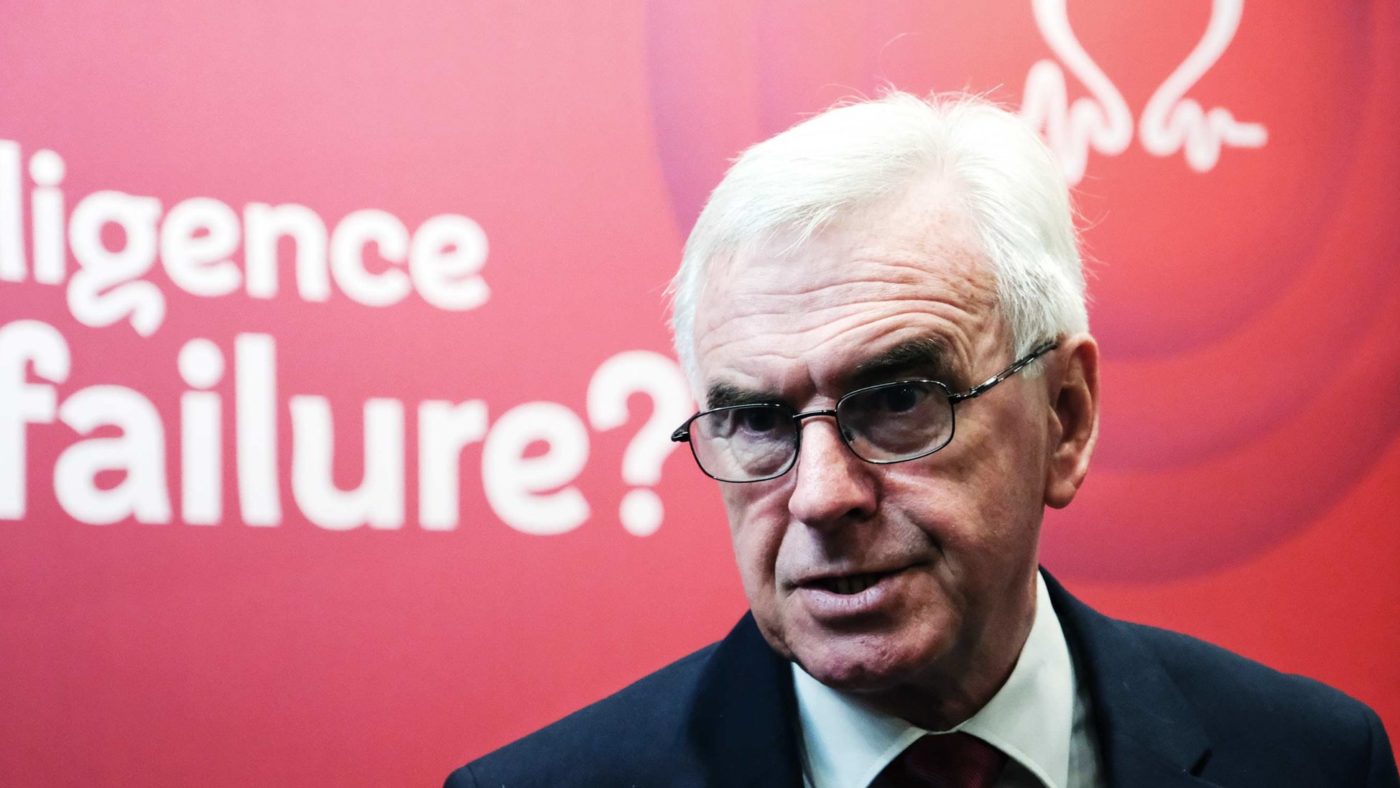The Shadow Chancellor delivered his pre-Budget speech today. John McDonnell usually manages to include in his speeches one or two interesting-if-horribly-destructive new policy ideas. One might have assumed a pre-Budget speech would be the occasion for a few more. But McDonnell kept his focus firmly on established ground.
Most of McDonnell’s speech was political and theoretical — familiar tunes about the evils of austerity and just how badly the government is handling the Brexit negotiations. There were no new policy announcements. As he put it: “Last year in the general election we set out the principles upon which a modern economy can be successfully managed so that we can invest in our public services, grow our economy and enable people to share fairly in the prosperity we will create. These basic principles of our approach still apply.”
More specifically he suggested that meant a “fair taxation system”, which he clarified in later interviews to imply the reversal of the government’s corporation tax cuts, enhanced measures to tackle tax evasion, increased taxes on the top 5 per cent of earners, and rises in inheritance tax. The funds raised by this “fair taxation system” would be used “to provide the investment needed in our public services”. He clarified that this meant an extra £49bn in public spending by 2022, of which £5bn would be for healthcare, over-and-above the £20bn extra funding for the NHS that Theresa May has already promised by 2023.
He also seeks an “entrepreneurial state implementing an industrial strategy with a mission-based approach prioritising innovation”, which is clearly a reference to the ideas of left-wing academic Mariana Mazzucato (who I discussed recently on CapX). This “entrepreneurial state” would also tackle “climate change and regional growth”. There would be an “investment programme to grow our economy harnessing through a Strategic Investment Board and a National Investment Bank the expertise and talent of our finance and manufacturing sectors.”
Labour would “[share] the prosperity we create by ensuring decent wages” (which he says included a “real living wage” of £10 per hour by 2020) and also ensure “trade union rights, representation of workers on boards and spreading ownership within our economy” — the latter being a clear reference to Labour’s proposals from May (which I discussed on CapX at the time).
The specifics of this agenda have been assessed in detail before. But it is of interest for us to consider them in combination: what sort of economy and society would they entail?
It would be a larger state — a 2-3 per cent of GDP increase in public spending immediately, with presumably a lot more to follow. It would be a much, much more activist state — not only legislatively, through trades union rights, but also through controlling investment decisions, determining the main research and innovation done, guiding society with “missions”, and controlling 10 per cent of the equity of all medium-sized and large firms.
Britain has functioned along these lines in the past — for example in the planned economy of World War II. If the state guides our research and sets our corporate missions, and its representatives set the agenda on workers’ boards, we can all pursue a more focused and directed collective endeavour. The state will guide society, taking us to where it wants us to go.
But woe to you, oh non-conformer, in this world. Woe to you, if you are greedy or lazy or do not share John McDonnell’s moral and philosophical outlook on a given matter.
A society dominated by markets can be tolerant of attitudinal, philosophical, and ethical difference. But if society relies, for its economic flourishing, upon us all pulling together in a collective endeavour to achieve the missions the state sets us — (missions the states gets from… where, exactly? Some new state religion, perhaps? The poems of some Marxist philosopher that Corbyn has been reading recently?) – if divergence of ethics and outlook is a threat to our collective prosperity, we should not expect it to be tolerated for long.
No-platforming, Twitter mobs and dogpiling will no longer be just indulgences of the student class. They will be vital tools of economic success. Chinese X Men actress Fan Bingbing’s extended period of public shaming over her apparent moral failings is just the shape of things to come in a state capitalist society — before the inevitable transition to the utopia of Marxism — or (whisper it softly) the chaos of Venezuela.
Do not let jolly John’s charming exterior distract you. What he seeks is what he has said in the past – “the overthrow of capitalism”. If that happens, it will be even less fun than listening to a Philip Hammond Budget address.


